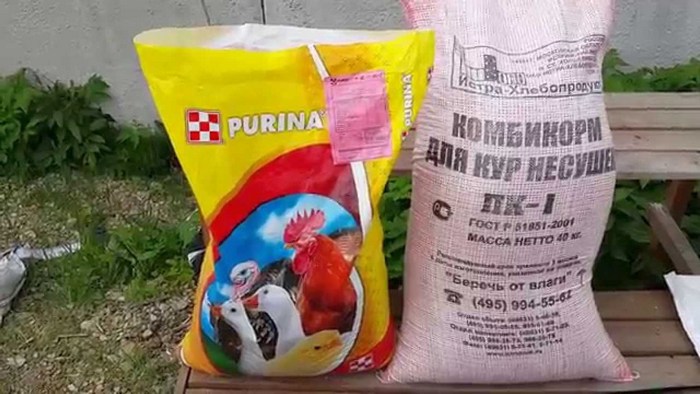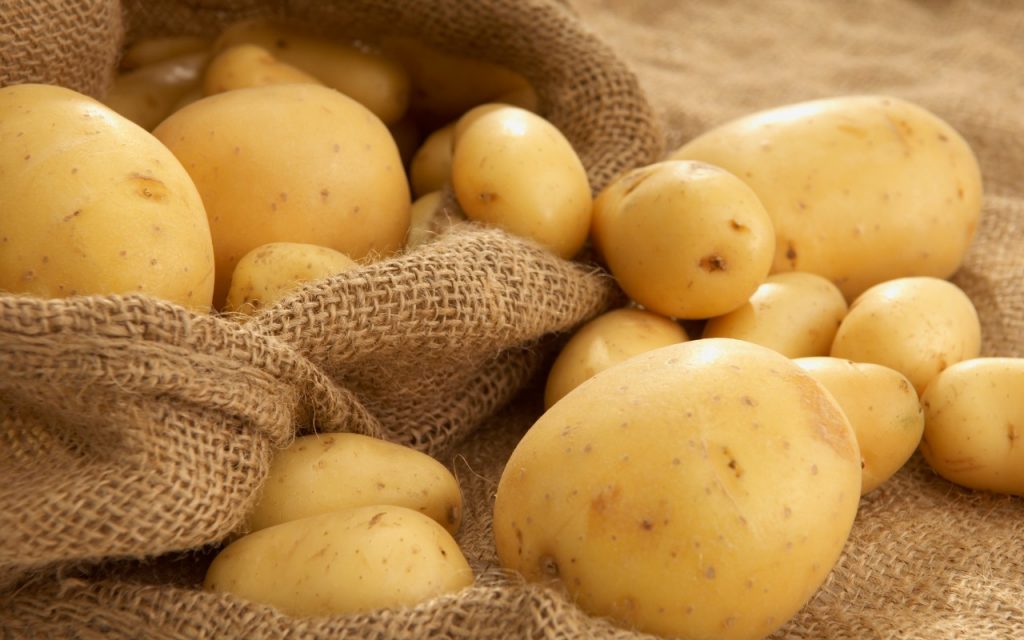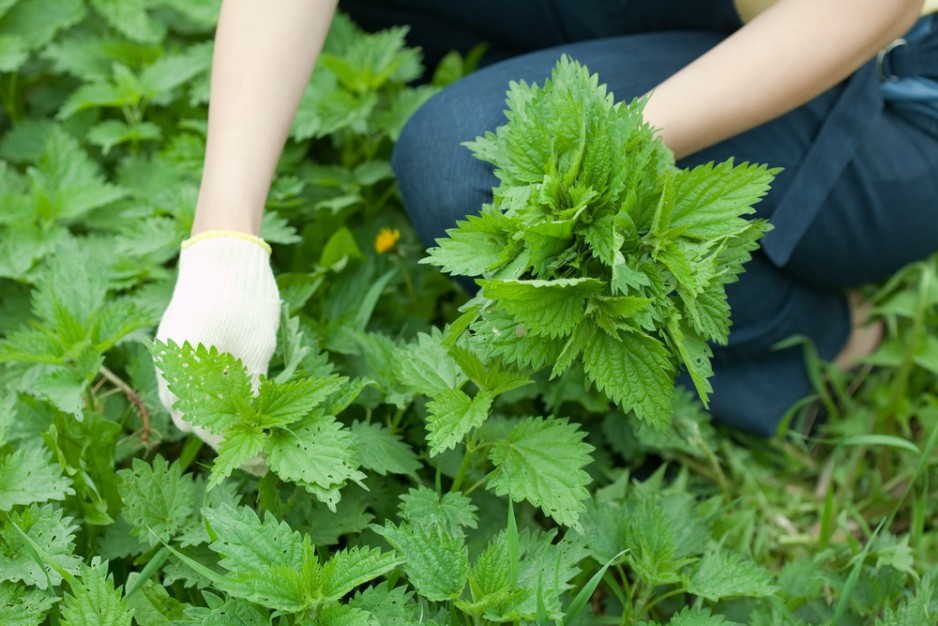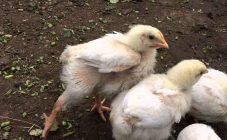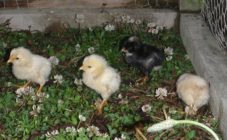Content:
If you are looking for a good beef breed of chickens, broilers are one of the best options. As you know, in the second year of life, they usually gain weight equal to one and a half or two kilograms. When raising these birds at home, you need to pay special attention to their nutrition. In order for broilers to grow healthy, it is necessary to follow the recommendations for proper feeding. Know what kind of grass you can feed your broilers.
Feeding at home
If broiler farming has been chosen, it is important to consider that appropriate conditions must be created for them. It should be remembered that they are cared for differently than an ordinary bird.
Usually feeding follows a certain pattern. Its goal is to accelerate the mass gain of birds. It is believed to have four stages:
- pre-start (this is the first five days of a chicken's life);
- start (after the end of the previous stage before the expiration of 18 days);
- fattening (this period includes days from 19 to 37);
- finish (this period of time starts from 38 days and continues until the slaughter of the bird).
During feeding, you need to follow a verified practice of the beneficial ratio between food and water intake. It is 1 in 1.7.
Broiler water should always be fresh and clean. The recommended temperature is 18 to 22 degrees.
It must be understood that from birth these birds are fed in the most efficient way, given their ability to assimilate food.
At different ages, a different number of feedings are required every day:
- In its first week of life, the chick should be fed eight times per day.
- The next week requires less intensive feeding - only six times.
- In the third week, the number of feeds is reduced to four.
- From the beginning of the fourth week until slaughter, it is enough to feed twice every day.
One of the options for feeding broilers is the use of compound feed:
- During the first decade, you need to prepare microgranules for chickens. You can feed sifted crumbs from compound feed.
- From 11 to 24 days, compound feed is given in granules of 2-3.5 mm in size.
- After that and before the slaughter is carried out, you can use coarse grinding or take compound feed with granules, 3.5 mm in size.
In broiler feeding, the first five days of chicks are especially important. If at this time a mistake is made in drawing up the diet, the consequences can be quite serious. In some cases, the entire brood may die due to improper feeding.
Care must be taken to ensure that food is easily soluble in water. At this time, the chicken diet may consist of:
- oatmeal;
- boiled eggs;
- millet;
- finely crushed wheat;
- oats;
- barley.
Starting from the fifth day, it is recommended to diversify the diet with finely chopped herbs. It is required for each chicken for five grams.
Additionally, foods that contain protein are added to the diet at this time. To do this, you can use yogurt, milk, cottage cheese.
When the twentieth day comes, 80% of the previous millet rate continues to be given to broilers, and instead of the remaining 20%, boiled potatoes are introduced into the diet. Sunflower cake will also be useful.
It is customary to use mash. As their base, they usually choose yogurt or broth, to which fish or bread yeast is usually added.
The addition of chicory helps broilers to digest better.
At the final stage, more succulent feed is added to the diet (you can use makuha). Usually poultry slaughter takes place after three months of rearing.
It is not recommended to use beets for feeding. This is due to the fact that it has a laxative effect on the bird's stomach. If fish is included in the diet, it must be fresh so that the birds do not cause indigestion.
Is it possible to feed with grass
Compared to regular chickens, broilers are more demanding and require special care. The slightest mistakes in ensuring their nutrition can lead to disease in the bird. Therefore, before introducing certain types of feed, you need to carefully study what benefits or harm can be expected from them.
There is a strong point of view that it is impossible to raise poultry with high quality using natural feed and vitamin supplements. It is generally believed that weight gain is impossible without the use of hormonal agents, and treatment without the use of antibiotics.
In the early days, a decoction of onion husks and coniferous needles will be useful.
In this case, emphasis can be placed on the use of herbal and cereal foods. It is known that these types of food are able to provide a complete set of essential minerals and vitamins.
Given the usefulness of such food, you need to understand that grass for broilers is not only acceptable, but also very useful.
However, in this case, you need to understand well what kind of greens and in what cases you need to give this bird.
One of the simplest ways is to buy a ready-made, specially formulated mixture in one of the specialty stores. It already contains the necessary vitamin supplements. Add chopped chalk and shells to the mixture. This is essential for providing the body with calcium.
What grass to feed broilers
It is believed that greens should not be offered to chicks on the first and second days after birth. From the third day it can be included in the diet. However, it must be remembered that you can only feed the chicks with tender greens, this is what kind of grass you can give broilers for up to a month. It is especially useful if it is fresh.
Before use, the grass must be finely chopped. Then it is added as a vitamin supplement to the feed mixture. The amount of greens is usually calculated on the basis that for an adult bird per day, it is enough to consume it in an amount of six grams.
When broilers are raised in summer, fresh grass is not difficult to find. Now let's figure out how to be with her if you plan to grow this bird in the cold season:
- In such a situation, it is unlikely that it will be possible to bring green grass from the street, however, you can sprout grain and feed broilers with sprouts, having previously chopped them up.
- Another option would be to use herbal flour. It is easy to make your own (such as nettle), but you can also buy it in the store.
In the latter case, grass meal can be given to chicks no earlier than the fifth day. During this time, it is not recommended to give more than three grams per day. This limitation is due to the presence of fiber in this product. After a few days, it is allowed to switch to a rate of five grams per day.
When the broiler is one month old, more grass can be added to the food. At this age, birds are more unpretentious in matters of nutrition. Several different types of greens will benefit from this age. This can be, for example, alfalfa. Nettle, clover, and radish leaves are believed to be the most beneficial.Euphorbia is perceived by broilers as a delicacy.
Tips from experienced poultry farmers
When feeding broilers with grass, it is important to remember that there are both beneficial plants and ones to avoid.
Broiler nettle is considered one of the most beneficial plants. It contains many useful substances:
- vitamins A, B, E;
- vitamin C;
- substances that improve digestion, accelerate growth.
Here's how to feed nettles to broilers. Before you start cooking nettles, you need to scald them with boiling water. It is recommended to mix the crushed leaves with the additive. This is one of the ways how to feed the cake to broilers.
It is believed that poultry nettles will be most beneficial within six hours of being mown. In the future, it will gradually lose its useful features.
It is recommended to actively use in the diet not only cake for broilers, but also clover. It is useful for broilers because it contains a lot of protein.
If you use freshly cut grasses in the diet, add cereals or legumes, this will help organize quality nutrition.
However, there are plants that are dangerous for broilers. These include:
- hemlock;
- cockle;
- cheremitsa.
These plants can kill birds.
Also not recommended for use:
- potato leaves and flowers;
- green tomatoes;
- burdock for broilers;
- elder;
- juniper.
If broilers choose their own weed, they do not need to be limited. On an instinctive level, they are able to choose the right grass for their food.
There is only one answer to the question of whether broilers can be fed grass. Using herbs for feeding boilers is not only possible, but also beneficial. However, one must beware of giving harmful plants. Herbs contain the required amount of substances that are needed for the full development of these birds.

